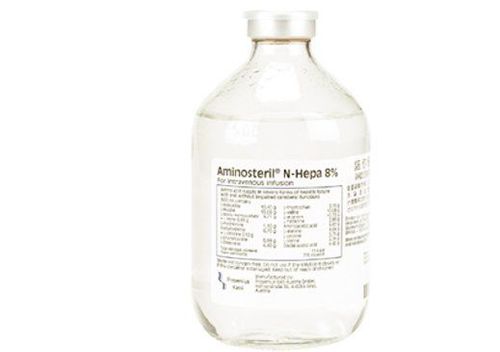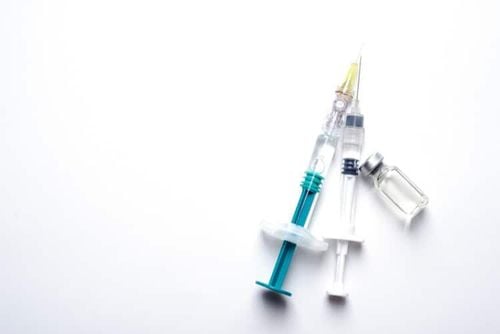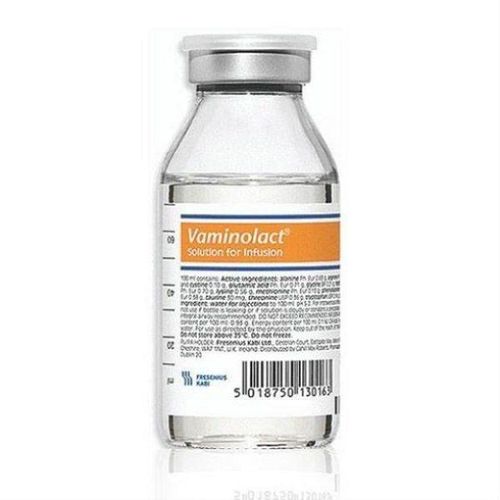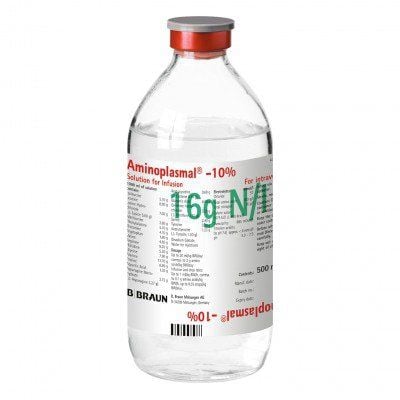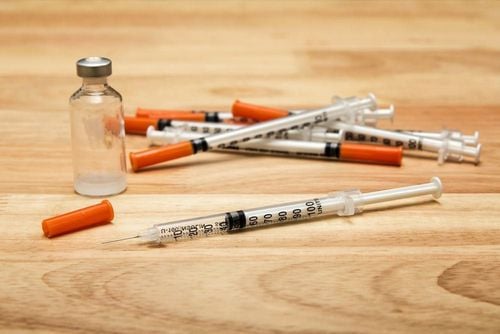This is an automatically translated article.
Posted by Master, Doctor Mai Vien Phuong - Department of Examination & Internal Medicine - Vinmec Central Park International General Hospital
Short bowel syndrome often occurs in people whose small intestine has been surgically removed in half or more, leaving the remaining length of intestine no more than 120cm, associated with poor absorption of nutrients . The small intestine is the organ that digests food and absorbs nutrients, resulting in people with short bowel syndrome not properly absorbing nutrients from food, vitamins, and water into the body to sustain life. .
1. The role of parenteral nutrition and enteral nutrition in the treatment of short bowel syndrome
Use of parenteral nutrition in short bowel syndrome is associated with reduced quality of life and a number of complications arising from not only parenteral nutrition, but also the catheters used to infuse nutrition outside the intestine. These complications may include catheter-associated blood infections and venous thrombosis, metabolic bone disease, liver disease, and kidney failure. An important goal when treating patients with short bowel syndrome requiring intravenous support (i.e. parenteral nutrition or IV fluids) is to reduce reliance on this support and, whenever possible, completely eliminate its use. The need for parenteral nutrition decreases as the intestine adapts after resection, allowing for greater absorption of nutrients and fluids. More than 50% of adults with short bowel syndrome are able to completely discontinue parenteral nutrition within 5 years of diagnosis.
2. Intestinal failure after short bowel syndrome
Following the 2 - 3 year period of intestinal best adaptation after bowel resection, the homeostasis/maintenance phase begins where no spontaneous intestinal adaptation is thought to occur.
Intestinal failure is generally considered permanent when parenteral nutrition is required after this period. There is great interest in the use of growth factors in patients with short bowel syndrome who cannot achieve intestinal independence during the acclimatization phase despite optimized diet and management. medical management.
Current understanding of the adaptive process has led to the study of hormones, nutrients and growth factors in experimental models and in humans with short bowel syndrome. Several pharmacological agents have been shown to induce nutritional properties on the intestinal epithelium in animal models of short bowel syndrome.
3. The role of growth hormone in short bowel syndrome
Growth hormone has been shown to promote crypt cell proliferation, stimulate mucosal growth, collagen deposition, and mesenchymal cell proliferation through insulin-like growth factor-1 and signaling inhibitors cytokine-2. Enhanced intestinal absorption has been repeatedly demonstrated in animal models of short bowel syndrome, whereas there are conflicting reports in humans.
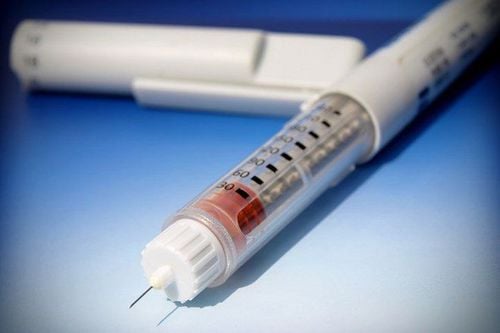
4. The role of intestinal rehabilitation
In a recent prospective, uncontrolled case series, Zhu and colleagues used a similar treatment program and produced very similar, long-lasting results. A prospective, randomized, placebo-controlled phase III trial performed at 2 subsequent centers was then performed. 41 patients with short bowel syndrome dependent on parenteral nutrition (most with a continuous internal colon) were enrolled and studied in an inpatient-like setting for 6 weeks; 2 weeks of diet and medication (i.e. antidiarrheals and proton pump inhibitors) and parenteral stabilization followed by a 4-week treatment period. Patients were randomized to 3 groups: somatropin (0.10 mg/kg subcutaneously once daily) with glutamine, somatropin without glutamine, and placebo with glutamine.
5. Practical approach to stopping parenteral nutrition
Eligibility criteria used in phase III clinical trials provide only a guide to assist in determining which patients should be considered for factor nutrition. Currently, these agents should not be used in children outside the scope of clinical studies.
Eligible patients include those with short bowel syndrome who neither have obstructive nor inactive GI malignancies and are dependent on parenteral nutritional support or IVF despite optimized diet , oral fluids and adjuvants. They must also be nutritionally optimized and fluid balance. Furthermore, the patient should be motivated with a desire to reduce or discontinue parenteral support. The presence/absence of colon and the length of the remaining small intestine are not necessarily determining factors in the selection of appropriate candidates and virtually any bowel anatomy can be considered.
6. What is important when stopping parenteral nutrition
Before discontinuing parenteral nutrition, regardless of the nutritional factor used, it is important for patients with short bowel syndrome to realize that it is important not to enter parenteral nutrition to take various oral medications and increase the daily intake of food and fluids. Major lifestyle changes and increased out-of-pocket costs are often required.
Therefore, patient education about the plan of care (eg, diet and medications to be taken and parenteral discontinuation plan) and ongoing support is important to strengthen compliance. This is best done in the context of multidisciplinary practice with healthcare providers experienced in the care of patients with short bowel syndrome.

7. Optimizing diet, water intake, and common antidiarrheal and antisecretory drugs of short bowel syndrome patients
Before parenteral nutrition begins to be discontinued, as mentioned earlier but it is important to re-emphasize, the usual diet, fluid intake, and antidiarrheal and antisecretory medications of the syndrome patient should be considered. Short bowel syndrome should be optimized. In addition, certain criteria should be met before reducing parenteral nutrition including meeting established daily calorie and fluid goals for the patient. Regular monitoring is required when parenteral nutrition is reduced thereafter based on tolerability as determined by development of symptoms, hydration status, electrolytes, and weight. urine volume > 1L (on nights without parenteral nutrition) and intestinal balance (intake minus fecal intake) between 500 and 1000 mL/day.
8. Caution when injecting growth hormone drugs somatropin or teduglutide
Once daily subcutaneous injection is required to use somatropin or teduglutide. Because injection site reactions are relatively common, the injection site should be rotated between the abdomen, thighs, and upper arms. The injection should be given at the same time each day. Patients should be aware of the precautions required when using these medications and be instructed on how to appropriately monitor for complications and what to do/who to contact when problems arise. There are no data on the use of these agents in the presence of octreotide, biologic agents, or immunosuppressive therapy.
Reduction of parenteral nutrition can be accomplished by reducing the number of days of parenteral nutrition per week or by reducing the amount of daily parenteral infusion equally throughout the week (eg, by 10% -30 %) .30 Patients tend to prefer the former; however, dehydration is of less concern. The teduglutide studies used the latter method while the phase III somatropin studies used the former.
9. Optimal time frame to make the decision to reduce parenteral nutrition
The optimal time period for making the decision to reduce parenteral nutrition has not been determined. At most, in an ambulatory setting, once per week seems appropriate while acknowledging that this needs to be personalized. A recent report recommends that laboratory studies be collected weekly with monthly in-office visits until parenteral requirements stabilize, after which frequency of follow-up and visits can be adjusted. can be reduced. Once parenteral nutrition is administered < 3 days/week, a trial of discontinuation of parenteral nutrition is suggested. Although occasional patients can successfully discontinue parenteral nutrition without a gradual withdrawal strategy, this approach is not recommended for short bowel syndrome who have been receiving parenteral nutrition for some time. long time.
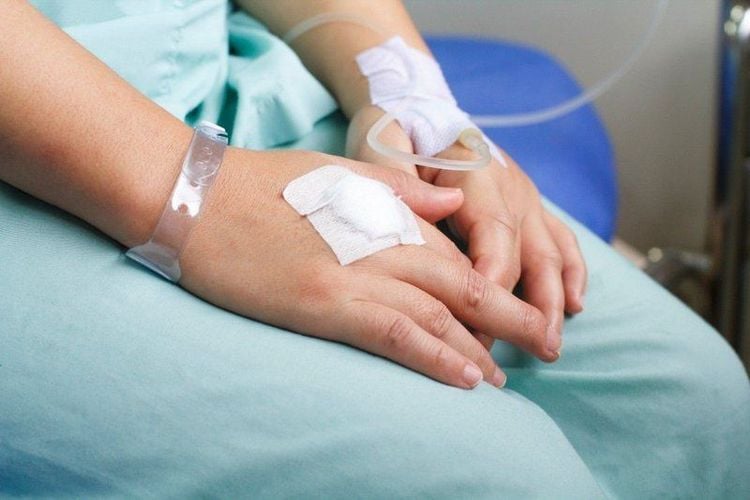
10. Oral micronutrient supplementation when parenteral nutrition
Oral micronutrient supplementation becomes necessary once parenteral nutrition has been discontinued and levels should be periodically monitored. Electrolyte supplementation, usually magnesium and/or potassium and sometimes bicarbonate, may also be necessary and requires monitoring. The frequency of monitoring will depend on the stage at which parenteral nutrition is discontinued and the presence of existing or prior deficiencies. Routine laboratory monitoring will need to continue indefinitely, even in children who have completely discontinued parenteral nutrition.
CONCLUSION
An important goal in the treatment of short bowel syndrome is to improve intestinal autonomy, thereby reducing and sometimes eliminating the need for parenteral nutritional support. After optimization of diet, hydration, and conventional pharmacological strategies (and sometimes surgical regenerative procedures), the use of nutritional factors has the potential to further reduce .
Currently available agents include somatropin, a recombinant human growth hormone, and teduglutide, a recombinant human GLP-2 analogue. Both agents, although quite different in duration, cost, and adverse events, have been shown in randomized, placebo-controlled trials to facilitate cessation of parenteral nutrition. Long-term safety and efficacy, short duration of drug administration associated with bowel syndrome onset, optimal patient selection to use, duration of therapy, and cost-effectiveness of both the somatropin and teduglutide strategies would require be studied further.
Currently, Vinmec International General Hospital is a prestigious address trusted by many patients in performing diagnostic techniques for digestive diseases, short bowel syndrome, chronic diarrhea, Crohn's disease , misplaced gastric mucosa in the esophagus, reflux esophagitis...
Vinmec Hospital with modern facilities and equipment and a team of experienced experts, always dedicated to treatment patients, customers can rest assured with gastroscopy and esophagoscopy services at Vinmec International General Hospital.
Please dial HOTLINE for more information or register for an appointment HERE. Download MyVinmec app to make appointments faster and to manage your bookings easily.
References
Messing B, Crenn P, Beau P, et al. Long-term survival and parenteral nutrition dependence in adult patients with the short bowel syndrome. Gastroenterology 1999;117:1043-1050. Amiot A, Messing B, Corcos O, et al. Determinants of home parenteral nutrition dependency and survival of 268 patients with non-malignant short bowel syndrome. Clin Nutr 2013;32:368-74. Byrne TA, Persinger RL, Young LS, et al. A new treatment for patients with short-bowel syndrome: growth hormone, glutamine, and a modified diet. Ann Surg 1995;222:243-254. Byrne TA, Cox S, Karimbakas M, et al. Bowel rehabilitation: an alternative to long-term parenteral nutrition and intestinal transplantation for some patients with short bowel syndrome. Transplant Proc 2002;34:887-890.






